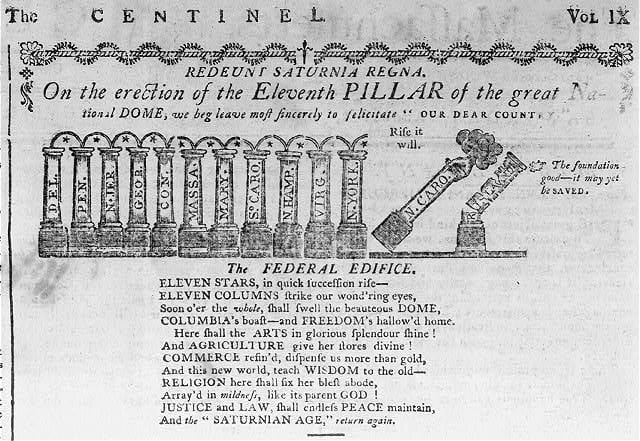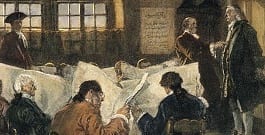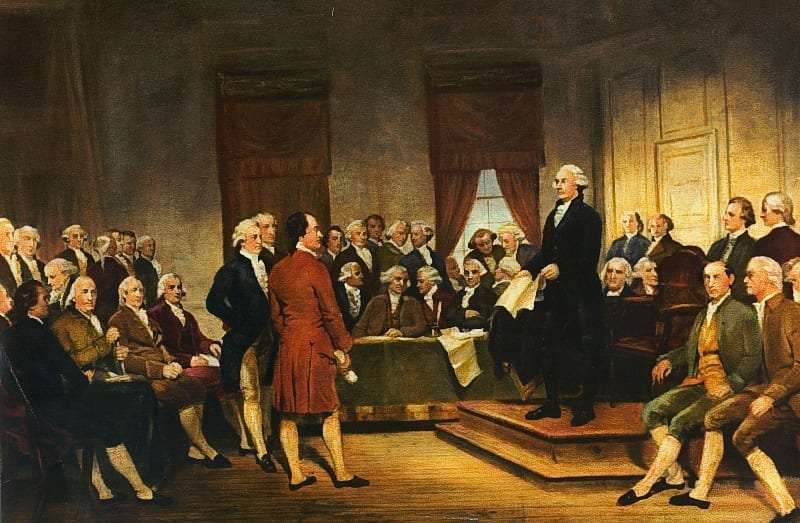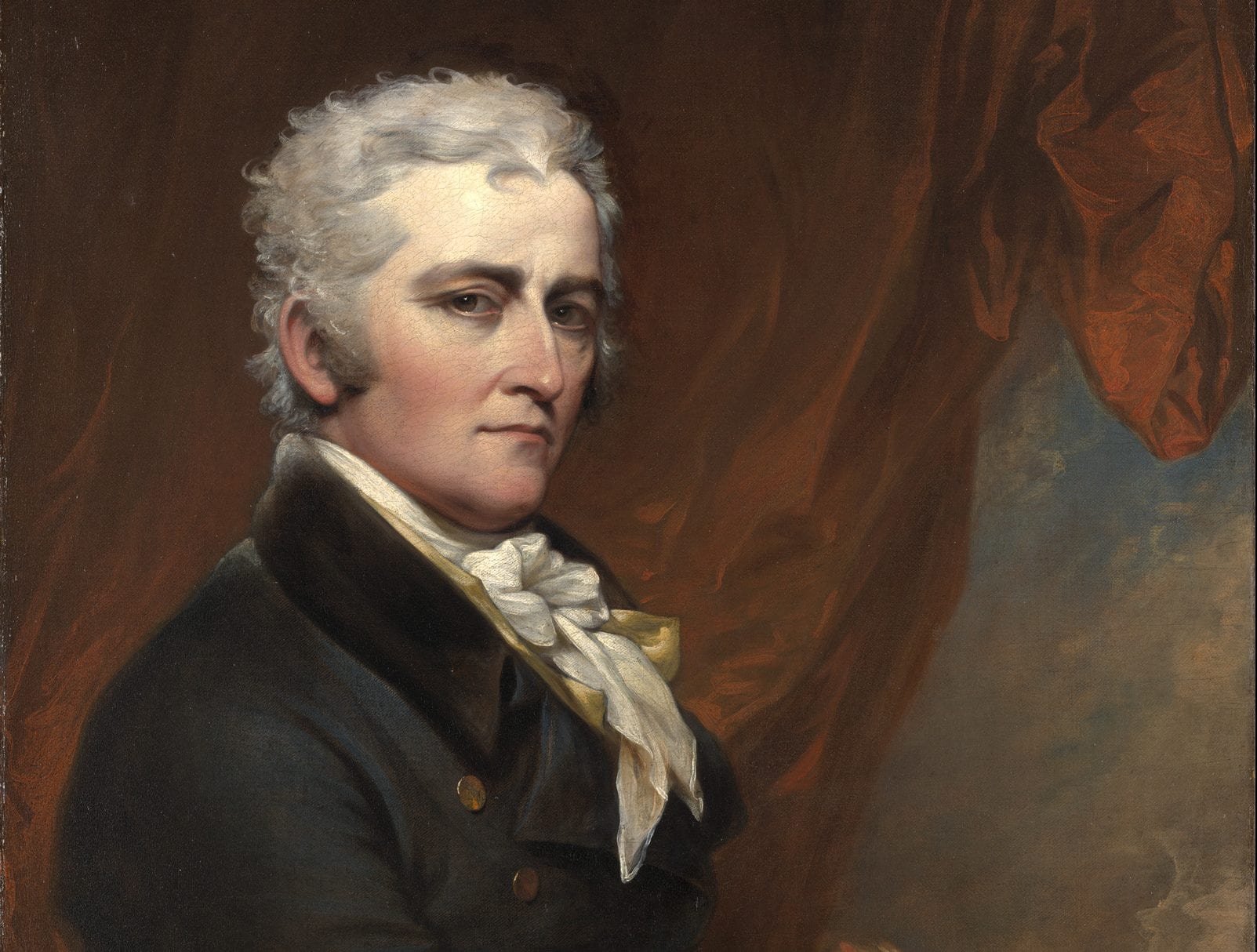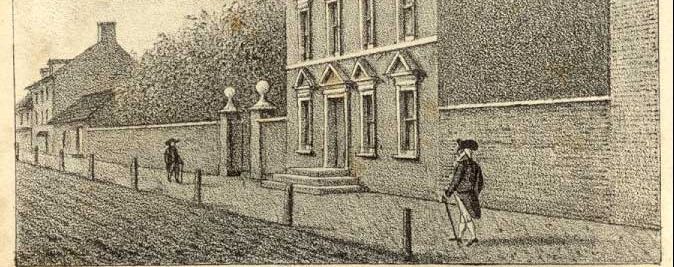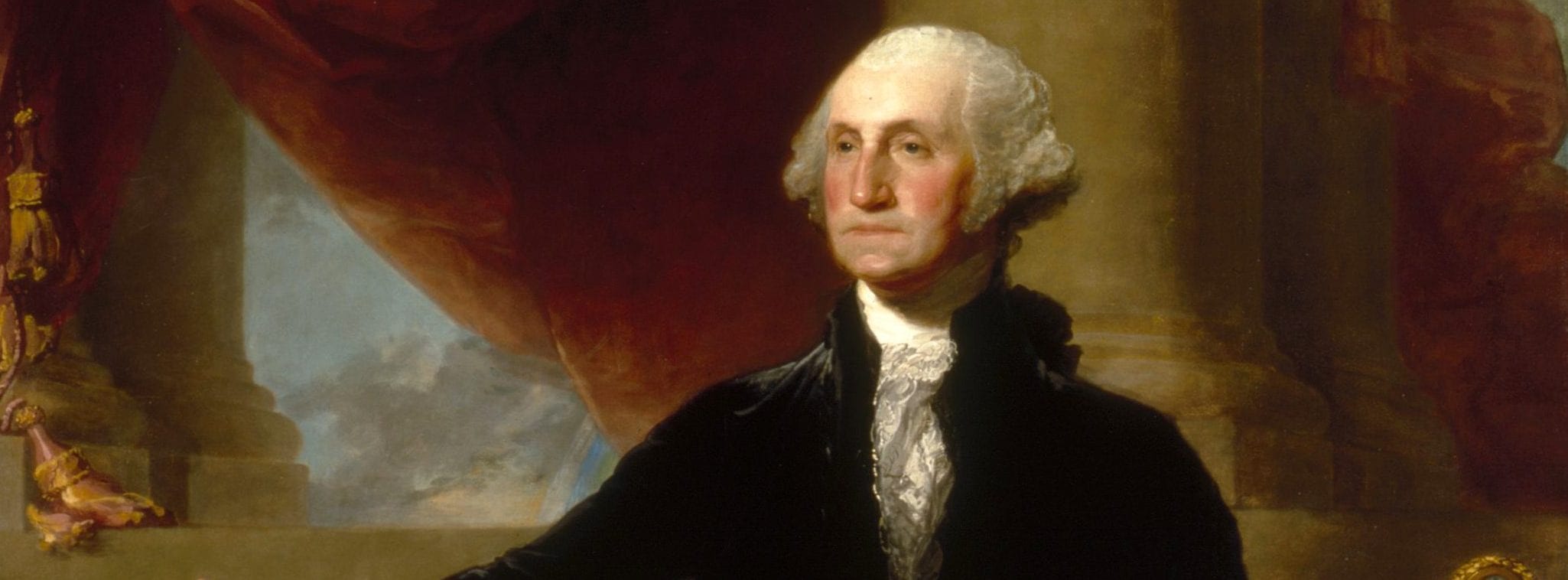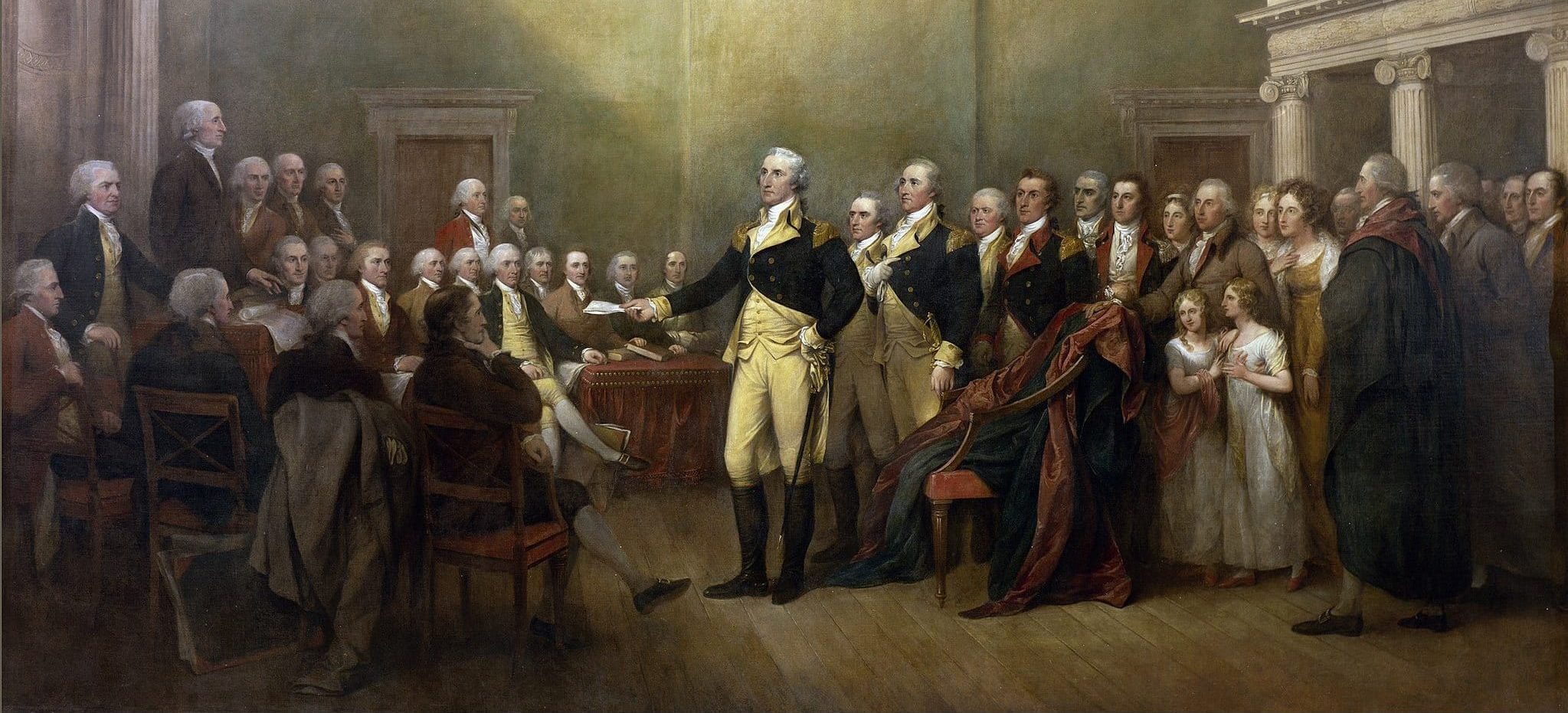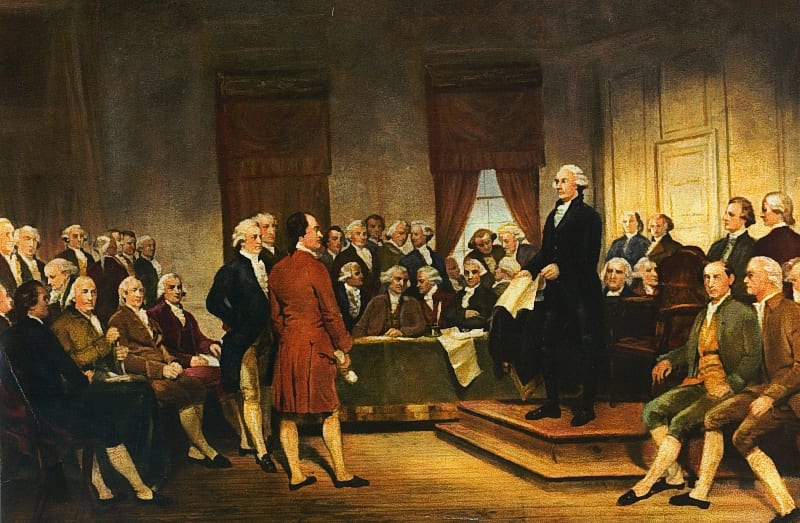
No study questions
No related resources
Mr. PRINTER, I think it is an observation of Dean Swift, that, in political matters, all men can feel, though all cannot see. Agreeably to this doctrine we find, that the necessity of giving additional powers to Congress is at length felt by all men, though it was not foreseen by a great number of the people. As the states individually could not protect our trade, foreign nations, friends as well as enemies, have combined against it; and at the same time that our trade is more beneficial to any nation in Europe, than the trade of any nation in Europe is to us, because we export provisions and raw materials and receive manufactures in return: we are not suffered to be the carriers of our own produce—foreign bottoms engross the whole of our carrying trade, and we are obliged to pay them for doing that which it is the interest of every people to do for themselves. Our shipwrights are starved, our seamen driven abroad for want of employ, our timber left useless on our hands, our ironworks, once a very profitable branch of business, now almost reduced to nothing, and our money banished from the country. These with the train of concomitant evils which always attend the loss of trade, or a state of trade which is unprofitable, have justly alarmed us all; and I am firmly pursuaded that scarcely a man of common sense can be found, that does not wish for an efficient federal government, and lament that it has been delayed so long. Yet at the same time it is a matter of immense consequence, in establishing a government which is to last for ages, and which, if it be suffered to depart from the principles of liberty in the beginning, will in all probability, never return to them, that we consider carefully what sort of government we are about to form. Power is very easily encreased; indeed it naturally grows in every government; but it hardly ever lessens.
The misfortunes under which we have for some time laboured, and which still press us severely, would be in a great measure alleviated, if not wholly removed, by devolving upon Congress the power of regulating trade and laying and collecting duties and imposts. If these powers were once fully vested in Congress, trade would immediately assume a, new face, money and people would flow in upon us, and the vast tracts of ungranted lands would be a mine of wealth for many years to come. I am pursuaded, that with this addition to the powers of Congress, we should soon find them sufficient for every purpose; and it is very certain that if we did not find them sufficient, we could easily encrease them. But instead of being contented with this, the late convention by their proposed constitution, seem to have resolved to give the new continental government every kind of power whatsoever, throughout the United States. This power I have already attempted to show, is not limited by any stipulations in favour of the liberty of the subject, and it is easy to shew, that it will be equally unchecked by any restraint from the individual states. The treasure of the whole continent will be entirely at their command. “The Congress shall have power to levy and collect taxes, duties, imposts and excises.” And what are the individual states to do, or how are they to subsist? may they also lay and collect taxes, duties, imposts and excises? If they should, the miserable subject will be like sheep twice shorne; the skin must follow the fleece. But the fact is, that no individual state can collect a penny, unless by the permission of Congress; for the “laws of the United States shall be the supreme law of the land, any thing in the constitution or laws of any state to the contrary, notwithstanding.” The laws of the individual states, will be only Leges sub graviore Lege: for the power of enacting laws necessarily implies the power of repealing laws; and therefore Congress, being the supreme legislatures, may annul or repeal the laws of the individual states, whenever they please. Not a single source of revenue will remain to any state, which Congress may not stop at their sovereign will and pleasure; for if any state attempt to impose a tax or levy a duty, contrary to the inclination of Congress, they have only to exert their supreme legislative power and the law imposing such tax or duty, is done away in a moment. For instance, it will very soon be found inconvenient to have two sets of excise officers in each town or county in every state, they will be in danger of clashing with each other, it will then be found “necessary and proper for carrying into execution the powers vested by the constitution in the government of the United States, or in some department or officer thereof,” to forbid the individual states to levy any more excise. Congress may chuse to impose a stamp—duty. It will be very inconvenient for people to run back and forward to different offices, to procure double stamps, and therefore it will be thought “necessary and proper” to forbid any state to meddle with stamp—duties. The same will be the case with many other taxes. They will be in danger of clashing with each other, if Congress and the several states should happen to lay taxes on the same article. The States therefore individually, will be restrained from imposing any taxes upon such articles as Congress shall think proper to tax. They must then try to find out other articles for taxation, which Congress have not thought proper to touch. This I fear will be a difficult task: for the expensive court to be maintained by the great president, the pay of the standing army and the numerous crouds of hungry expectants, who have lost their all, and it will be said, have lost it by their zeal for the new constitution, must necessarily employ the sharpest wits among their ablest financiers, to devise every possible mode of taxation; and besides, if an individual state should hit upon a new tax that should happen to be productive, there is no doubt but it would soon be taken from it and appropriated to the use of the United States. The inhabitants of the TEN MILE SQUARE, would find ways and means to dispose of all the money that could possibly be raised in every part of the United States. What then will become of the separate governments? They will be annihilated; absolutely annihilated; for no man will ever submit to the wretchedness and contempt of holding any office under them.
The advocates of the proposed constitution, seem to be aware of the difficulty I have hinted at, and therefore it is, I presume, that in conversation as well as in their publications, we are told that under the pro—posed constitution, “direct taxation will be unnecessary;” that “it is probable the principal branch of revenue will be duties on imports.” Some of those who have used such language in public and private, I believe to be very honest men; and I would therefore ask of them, what security they can give us, that the future government of the continent will in any measure confine themselves to the duties upon imports, or that the utmost penny will not be exacted which can possibly be collected either by direct or indirect taxation? How can they answer for the conduct of our future rulers? We have heard enough of these fair promises for the good behaviour of men in office, to learn to doubt of their fulfilment, unless we guard ourselves by much better security, there will be no bounds to the new government. They will not have as much to spare for the separate states to collect as Lazarus picked up of the frag-ments from the rich man’s table; There are mouths at this moment gaping in the United States for all that can possibly be collected;—a confederacy is already formed for dividing the public cake to the last crum; and I wish they may not quarrel for more.
But if I were mistaken in this opinion; if in the language of these gentlemen, “it is probable that the principal branch of the public revenue will be duties on imports;”—if it is probable that these with the back lands and the post—office will be sufficient, where was the necessity of being in such haste to grant more;—to grant all without limits or restrictions? Men do not usually give up their whole purse where they can pay with part. Why might we not try at least how far the customs and back lands would go before we give all away from the seperate states, without reserving any thing for their support.
The true line of distinction which should have been drawn in describing the powers of Congress, and those of the several states, should have been that between internal and external taxation. I am persuaded that the existence of the several states in their separate capacities, and of the United States in their collective capacity, depends upon the maintaining such distinction. Without the power of imposing duties on foreign commerce and regulating trade, the United States will be weak and contemptible, and, indeed, their union must be speedily dissolved: And on the other hand, if the Legislature of the United States shall possess the powers of internal as well as external taxation, the individual states in their separate capacities, will be less than the shadows of a name.
I observe that the late delegates of Connecticut,— in their letter to the Governor, speak of the power of direct taxation as an authority which need not be exercised if each state will “furnish the quota.” Yet there is no doubt but they may exercise this power if they choose to do it; and they alone will have the right of judging what quotas the several states shall be required to furnish. They may ask as much as they please, and if the states do not furnish all they ask, they may tax at their pleasure; under these circumstances the power of internal taxation will undoubtedly be exercised by the Continental Legislature. If it be said that it is to be expected that the Congress will exercise this power with moderation, I venture to pronounce that those who indulge such hopes, are not acquainted with the principles of human nature. Independent of the multitudinous expectations which the followers of the proposed Consti—tution entertain in their own favor, which alone, if gratified, would consume the treasures of two such continents as this; there is a spirit of rivalship in power, which will not suffer two suns to shine in the same firmament, one will speedily darken the other, and the individual states will be as totally eclipsed, as the stars in the meridian blaze of the sun. We have seen too much of this spirit in the several states, under the present loose and futile confederation. A jealousy of the powers of Congress in the separate states, which is founded in the same rivalship of power, and which, however contemptible it may appear, was alike founded in the principles of human nature, may furnish us an exemplary lesson upon this head: And when we verge to the other extreme by vesting all power in Congress, we shall find them equally jealous of any power in the individual states, and equally possessed of the same spirit of rivalship, which heretofore denied the necessary supplies from the states to Congress.—We shall never be able to support the collective powers of the United States in Congress, and the powers of the individual states in their separate capacities, without drawing the line fairly between them. If we leave the states individually to the mercy of the Continental Government, they will be stript of the last penny which is necessary for their support: if we give all powers to one, there will be nothing left for the others. The lust of dominion, where it is indulged, will swallow up the whole.
But I shall be told that if Congress are left to depend upon requisitions from the individual states for any part of the necessary supplies, the same difficulty will remain which has hitherto existed; and I may be asked, what shall we do if the supplies should fall short? I answer that although nothing but a very serious necessity of money for continental purposes will ever procure supplies upon requisition from the separate states, yet when that necessity exists in any degree that is really alarming to the whole community, I do not think that such supplies are to be dispaired of. We have seen many instances of aid being furnished, even voluntarily upon pressing occasions, which should teach us to rely on the exertions of the states upon occasions of real and not mere imaginary necessity. One thing will certainly follow from the Continental Governments being restrained to external taxation;—that it will be under the necessity of exercising more economy than it has done, especially during the late war. We have been witnesses of such a profuse expenditure of public money at some periods, as these states could never support. This profusion ought to convince us that if all the treasures of the continent are intrusted to the power of Congress, there is too much reason to fear that the whole will be consumed by them, and nothing left to the individual states; and judging from past experience we may venture to presage that the people will be fleeced without mercy, if no check is maintained upon the power of Congress in the articles of taxation.
We ought to be very fully convinced of an absolute necessity existing before we entrust the whole power of taxation to the hands of Congress; and the moment we do so, we ought by consent to annihilate the individual states; for the powers of the individual states will be as effectually swallowed as a drop of water in the ocean; and the next consequence will be a speedy dissolution of our republican form of government.
Federalist 3
November 03, 1787
Conversation-based seminars for collegial PD, one-day and multi-day seminars, graduate credit seminars (MA degree), online and in-person.




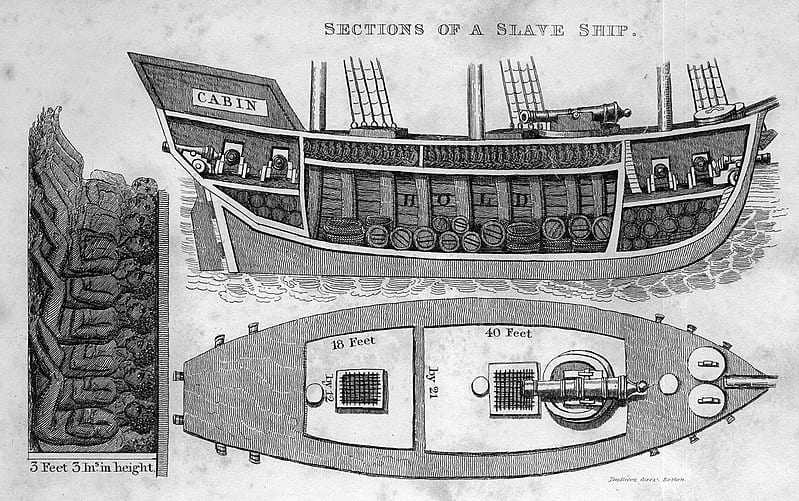






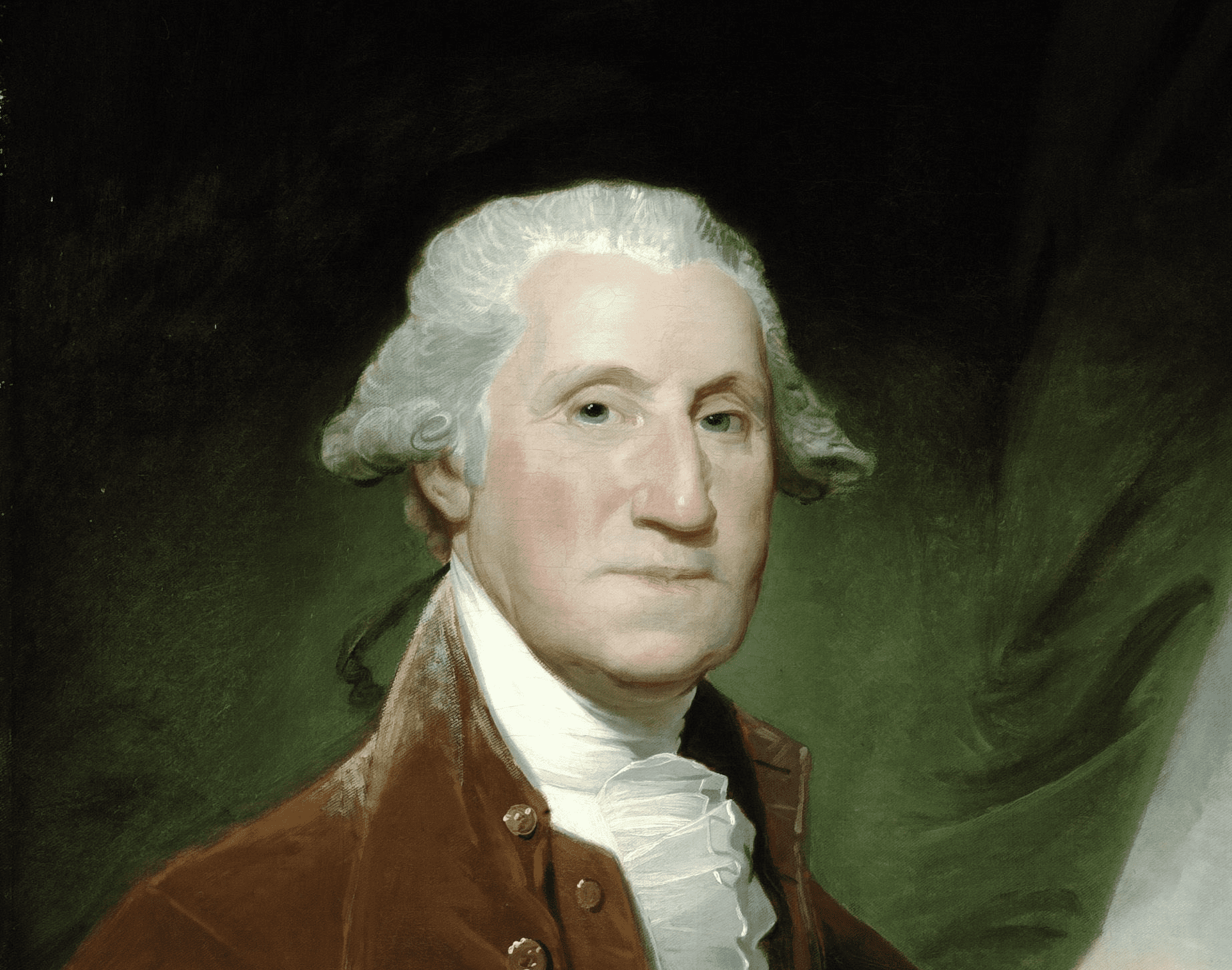















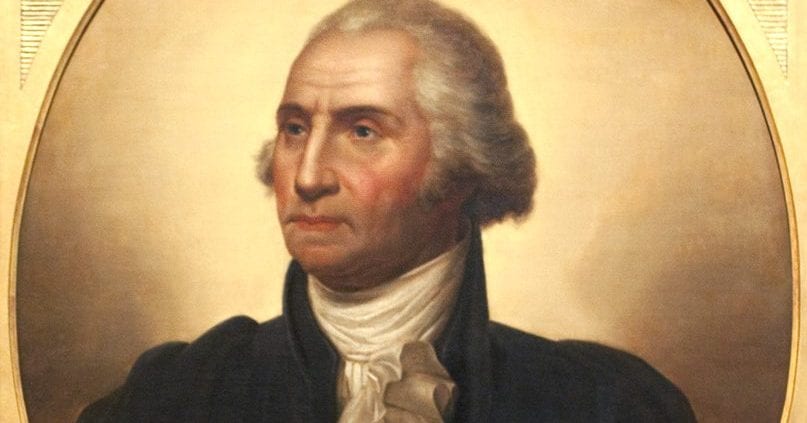
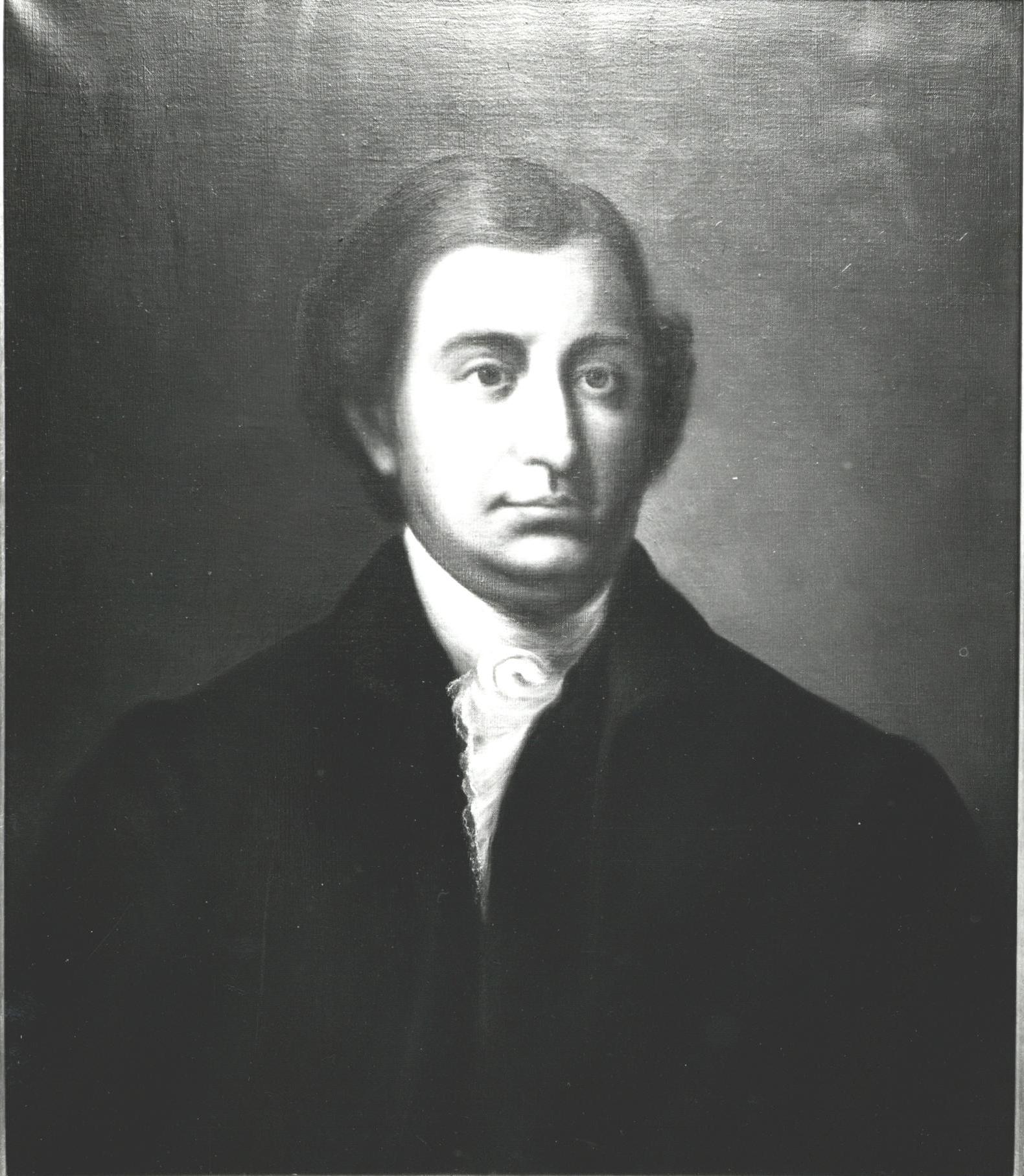
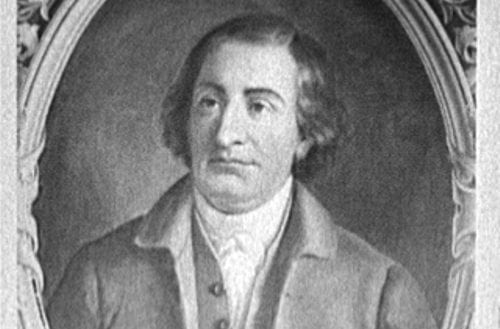
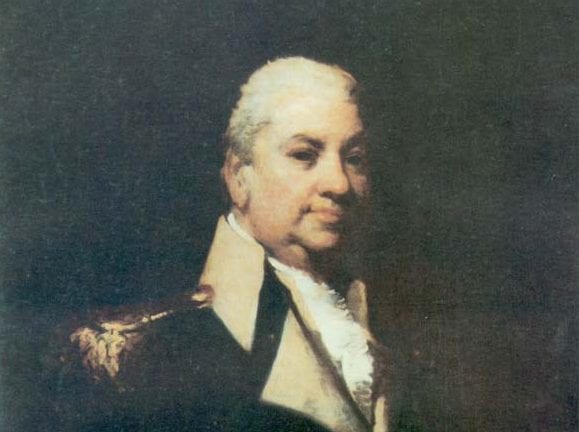


















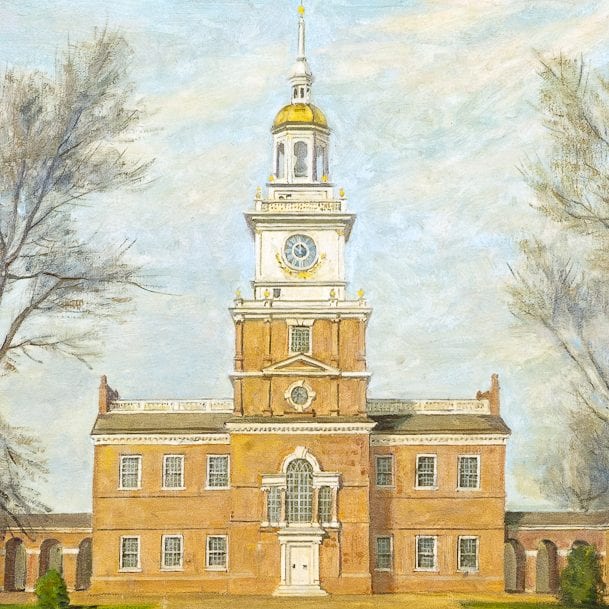

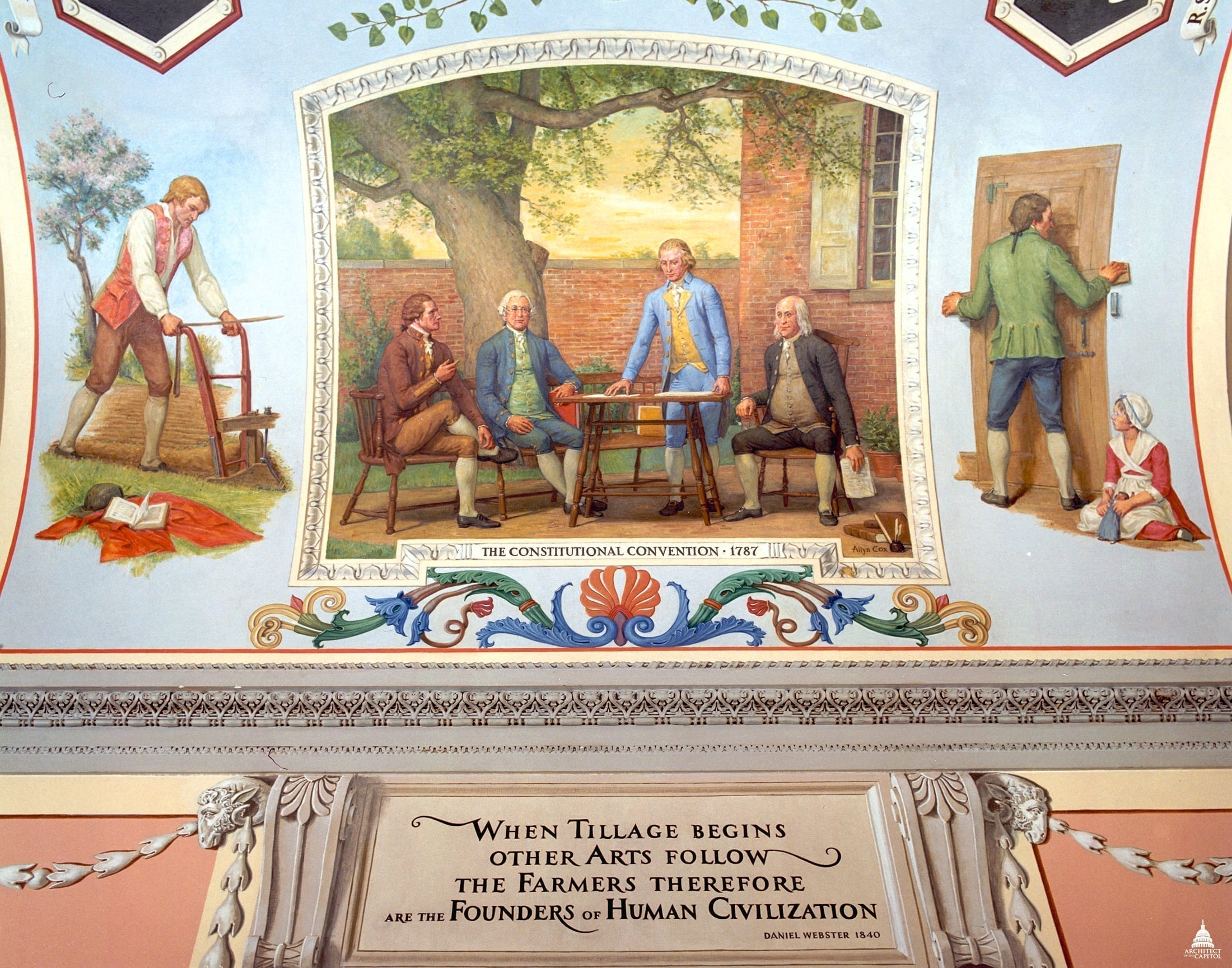

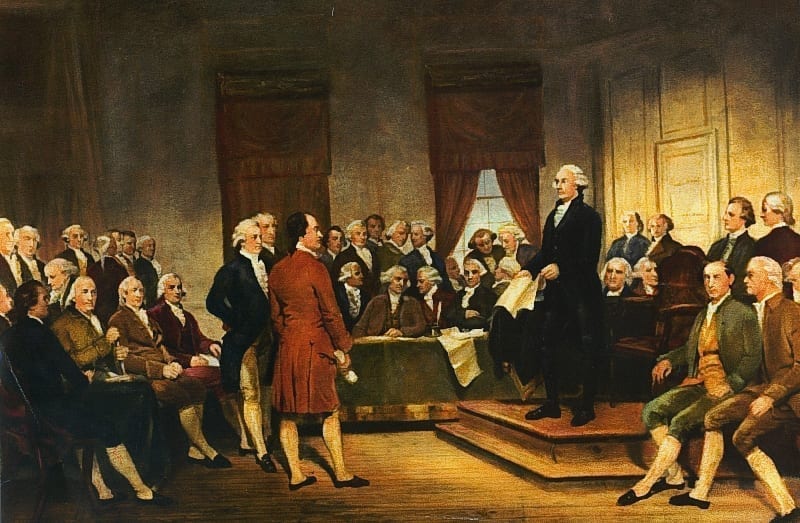



















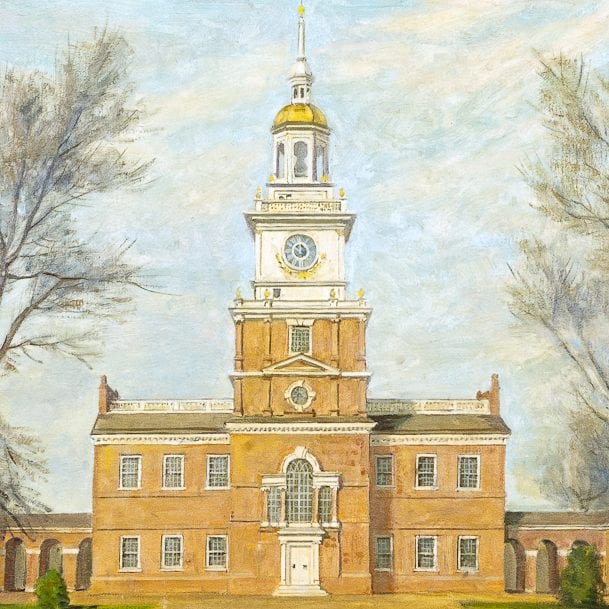
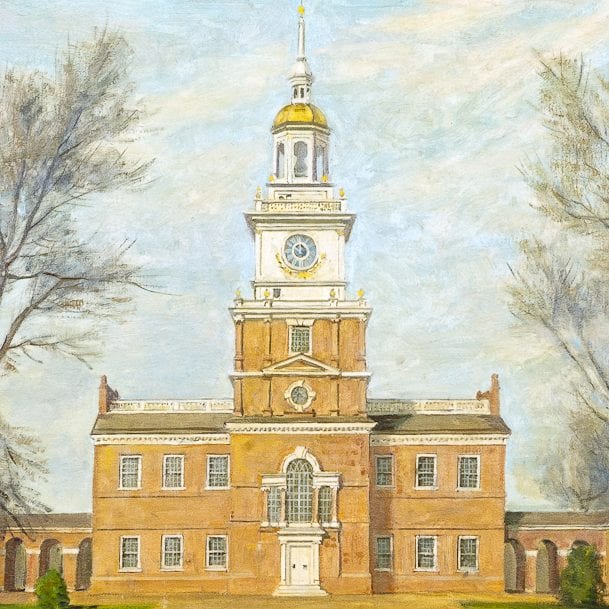


































































































![Finley, A. (1829) Pennsylvania. Philada. [Map] Retrieved from the Library of Congress, https://www.loc.gov/item/98688548/.](/content/uploads/2024/02/Map-of-PA--273x190.jpg)





















